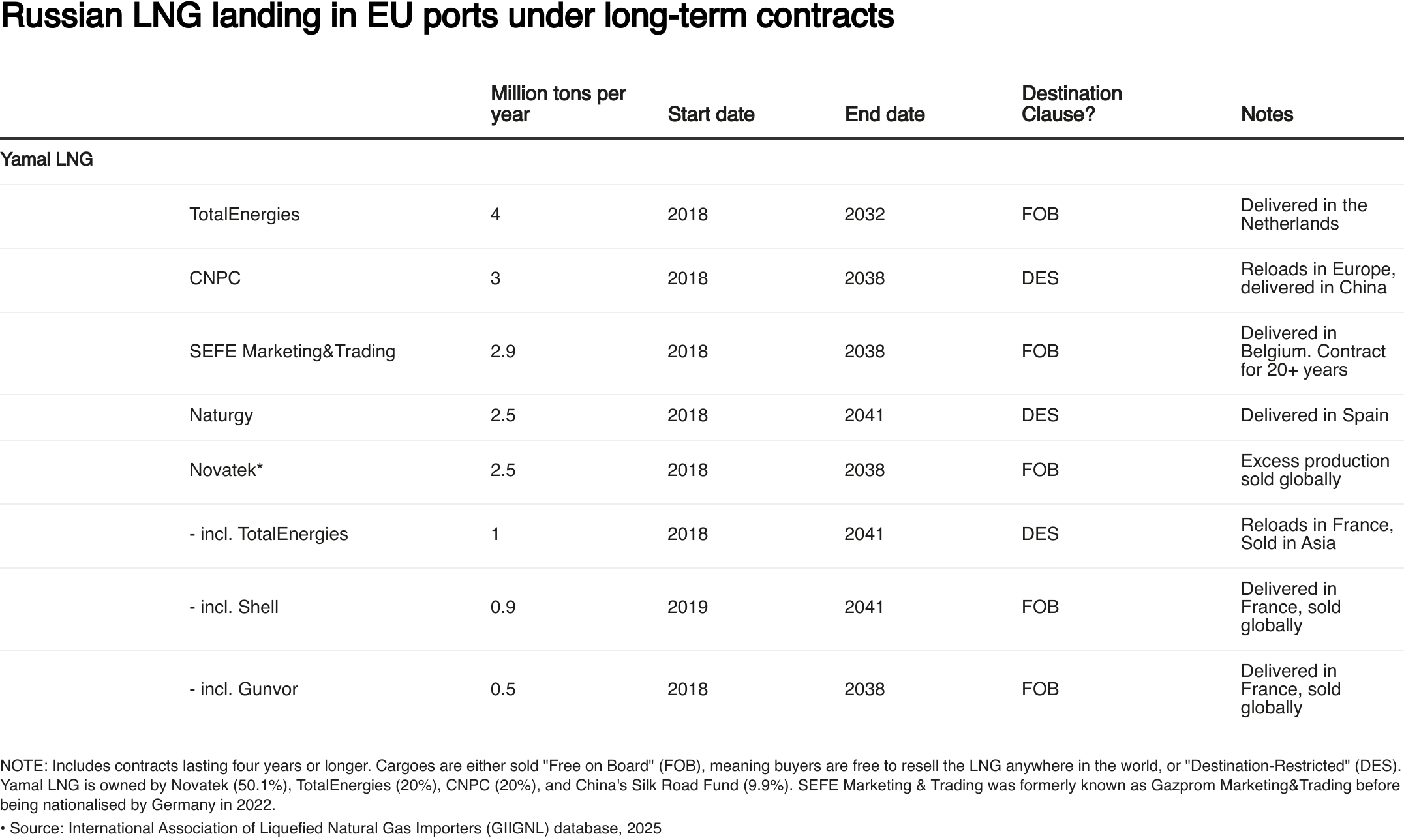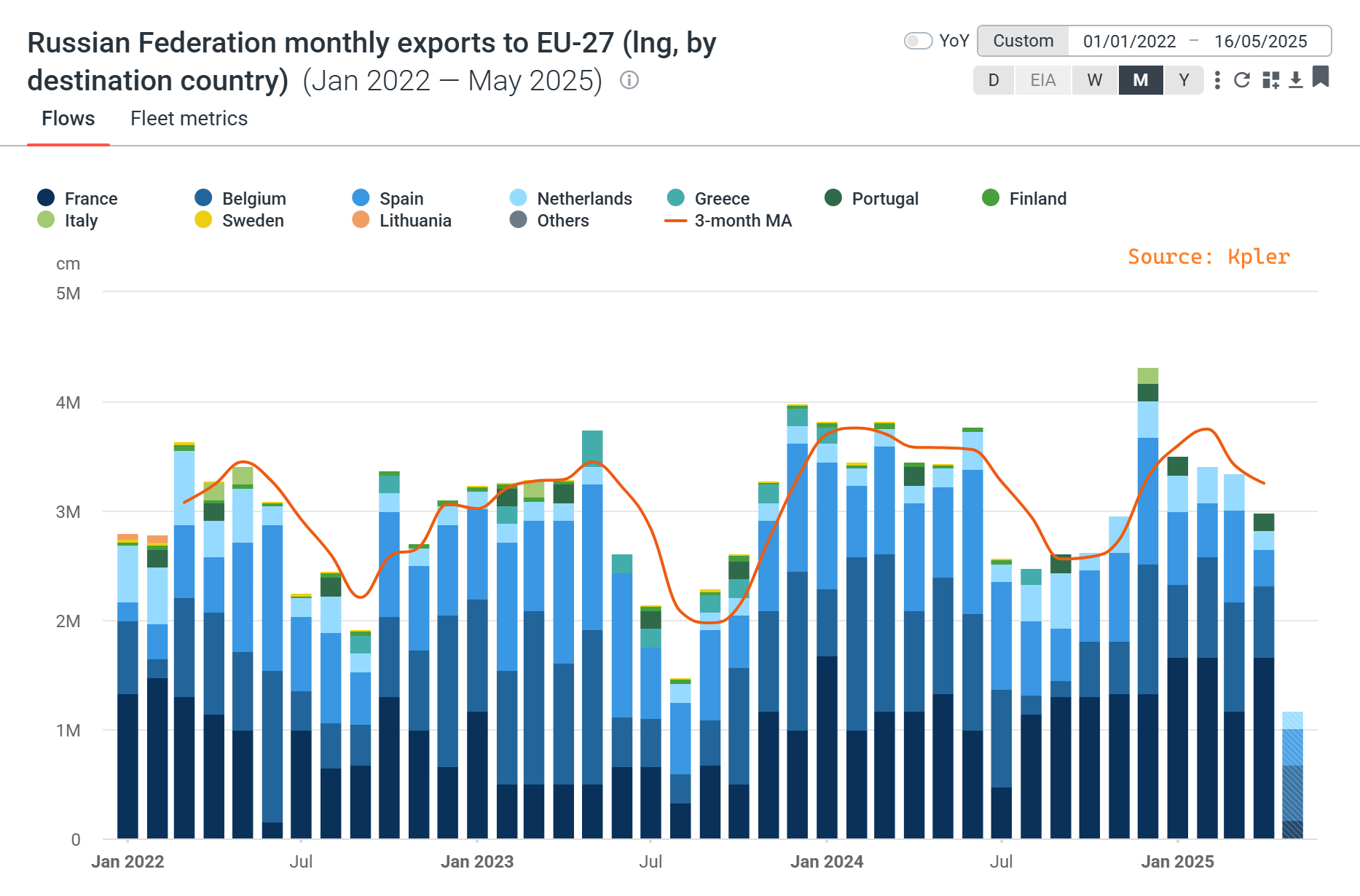Update: EU proposes ban on Russian gas imports by end of 2027
- EU proposes legal measures to ban Russian gas
- Would gradually halt Russian imports by end of 2027
- Proposals need support from reinforced majority of EU countries
- Some concerned about legal risk for importing companies
The European Commission on Tuesday proposed a legally binding ban on EU imports of Russian gas and liquefied natural gas (LNG) by the end of 2027, using legal measures to ensure the plan cannot be blocked by EU members Hungary and Slovakia.
The proposals set out how the European Union plans to fix into law its vow to end decades-old energy relations with Europe's former top gas supplier, made after Moscow's 2022 invasion of Ukraine.
First, imports would be banned from January 1, 2026, under any Russian pipeline gas and LNG contracts signed during the remainder of this year.
Imports under short-term Russian gas deals - defined as those lasting less than one year - signed before June 17, 2025, would be banned from June 17 next year.

Finally, imports under existing long-term Russian contracts would be banned from January 1, 2028, effectively ending the EU's use of Russian gas by this date, the Commission said.
Hungary and Slovakia, which still import Russian gas via pipeline and have opposed the EU plans, would have until January 1, 2028, to end their imports, including those on short-term contracts.
Companies including TotalEnergies and Spain's Naturgy have Russian LNG contracts extending into the 2030s.
EU LNG terminals would also be gradually banned from providing services to Russian customers, and companies importing Russian gas would have to disclose information on their contracts to EU and national authorities, Reuters reported previously.
EU energy commissioner Dan Jorgensen said on Monday that the measures were designed to be legally strong enough for companies to invoke the contractual clause of "force majeure" - an unforeseeable event - to break their Russian gas contracts.
No veto. Slovakia and Hungary, which have sought to maintain close political ties with Russia, say switching to alternatives would increase energy prices. They have vowed to block sanctions on Russian energy, which require unanimous approval from all EU countries, and have opposed the ban.
To get around this, the Commission based its proposed ban on EU trade and energy law - a legal basis that can be passed with support from a reinforced majority of countries and a majority of the European Parliament.
About 19% of Europe's gas still comes from Russia, via the TurkStream pipeline and LNG shipments, down from roughly 45% before 2022.

To replace Russian supplies, the EU has signaled it will expand clean energy and could import more U.S. LNG.
Spain, Belgium, the Netherlands and France import Russian LNG but have all said they fully support the ban, emphasizing that it must be sufficiently robust legally to avoid exposing companies to penalties or arbitration, EU diplomats said.
Lawyers have said it would be difficult to eliminate risk for companies if the EU does not use sanctions.
"Arbitration is possible. We expect that some of the contract partners ... may try to use the courts," a Commission official said.
Related News
Related News

- ExxonMobil halts 1-Bft3d blue hydrogen project in Texas
- Aramco and Yokogawa commission multiple autonomous control AI agents at Fadhili gas plant
- Ukraine will resume gas imports via Transbalkan route in November
- Mitsubishi to inject $260 MM into Brunei LNG project
- Freeport LNG (U.S.) on track to take in more natgas on Thursday after unit outage



Comments